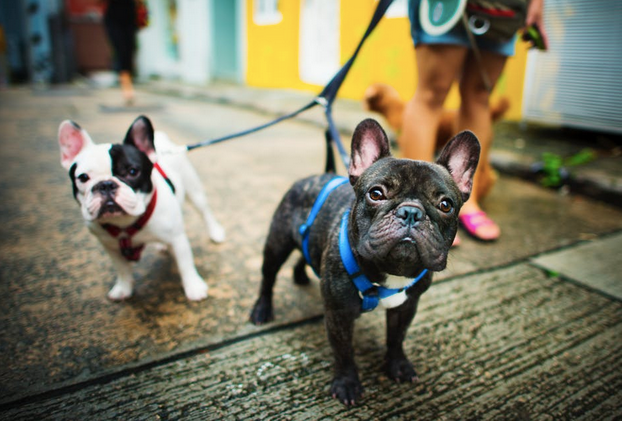Why Your Daily Habits Should Guide Your Dog Breed Choice?
Share
When it comes to choosing the perfect dog breed, many people focus on factors such as size, appearance, and temperament. While these are all important aspects to consider, one factor that often gets overlooked is our daily habits. Our lifestyle and routine can play a crucial role in determining which dog breed is best suited for us. In this article, we will explore why our daily habits should be a guiding factor when choosing the right dog breed.

The Impact of Lifestyle on Dog Breed Choice
The impact of our lifestyle on dog breed choice cannot be overstated. For example, if you lead an active lifestyle and enjoy spending time outdoors, a high-energy breed such as a Border Collie or Australian Shepherd may be the perfect fit. On the other hand, if you prefer a more relaxed and laid-back routine, a low-energy breed like a Bulldog or Basset Hound may be a better match. Our living space can also play a role in our dog breed choice. If you live in a small apartment, you may want to consider a smaller breed like a Chihuahua or Pug that would be comfortable in a limited space. However, if you have plenty of room and are willing to invest in an incredible dog sofa bed, you may want to opt for a larger breed like a Golden Retriever or Labrador that will have enough space to stretch out and relax. Our daily habits and lifestyle should be carefully considered when selecting the right dog breed to ensure a happy and harmonious relationship between dog and owner.
Active vs Sedentary
Are you someone who enjoys regular exercise, or do you prefer a more sedentary lifestyle? If you lead an active life and enjoy activities such as hiking, running, or playing sports, then an energetic and athletic breed would be a perfect match for you. However, if you prefer a more relaxed and low-key lifestyle, consider a breed that requires minimal exercise such as a Basset Hound or Chow Chow. It's essential to choose a dog that can keep up with your level of physical activity to ensure both you and your furry companion are happy and healthy. Alternatively, if you find yourself somewhere in between active and sedentary, many breeds are adaptable and can thrive in a variety of activity levels, such as a Beagle or Corgi.

Work Schedule and Dog Breeds
Our work schedule is another important factor to consider when choosing the right dog breed. Do you have a demanding job that requires long hours away from home, or do you work from home with more flexibility in your schedule? High-energy breeds like Border Collies and Jack Russell Terriers may not be a good fit for busy working professionals who are unable to provide them with the necessary exercise and attention they need. On the other hand, breeds that are more independent and can entertain themselves, such as Basset Hounds or Greyhounds, may be a better fit for those who work long hours. Finding a balance between our work schedule and dog breed choice is important to ensure our furry friends receive the necessary care and attention they deserve.
Grooming, Training, and Other Daily Tasks
When choosing a dog breed, match it with your daily routine. Some breeds like Samoyeds or Huskies have thick coats needing regular brushing, which is time-consuming. Meanwhile, breeds such as Chihuahuas or Boston Terriers, with their short coats, demand less grooming, fitting well into busy schedules. Consider the breed's training needs too. Dogs like German Shepherds or Doberman Pinschers require consistent training and mental stimulation, suited for those with time for training sessions.
However, breeds like Greyhounds or Cavalier King Charles Spaniels are less training-intensive, needing just basic obedience. For a busy lifestyle, low-maintenance breeds like Beagles or Bulldogs, which need less grooming and are easier to train, could be ideal. But if you enjoy grooming and can invest time in training, breeds like hypoallergenic Poodles or trainable Border Collies might be a better match. These breeds offer the chance for closer bonding through grooming and training.
Our daily habits and lifestyle should be carefully considered when selecting the right dog breed for us. From our level of physical activity to work schedules and grooming preferences, each aspect can play a significant role in determining which breed is best suited for us. By dedicating time to carefully assessing our daily routines, lifestyles, and living environments, and then aligning these aspects with the characteristics of compatible dog breeds, we can greatly increase the chances of fostering a happy and harmonious relationship with our furry companions. This thoughtful approach ensures that both the needs of the dogs and the preferences of the owners are met, leading to a mutually beneficial and fulfilling companionship.